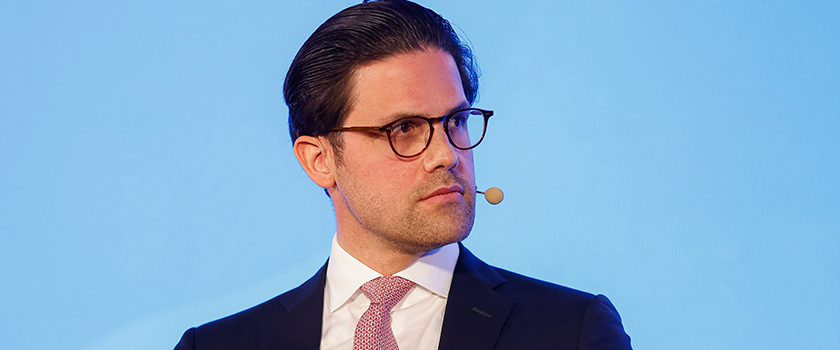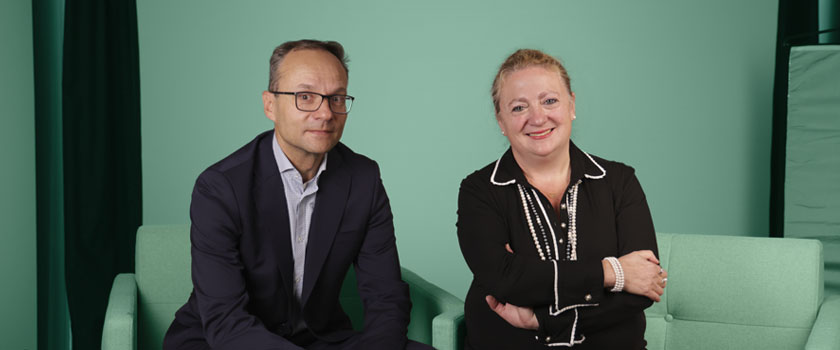Gentera’s CFO, Mario Ignacio Langarica Avila discussed with UBP the transition of the business to a for-profit group and the unique challenges presented by Covid-19.
Started in 1990, Gentera was originally an NGO, but became a listed company in 2007. The company is a pioneer of microlending in Mexico, with a focus on giving women the financial tools they need to establish and grow their own businesses. This makes Gentera’s activities a good example of positive impact.
Can you tell us a bit about Gentera’s history and its transformation from an NGO into a business?
Gentera’s roots go back to a movement called “Gente Nueva” started by a group of young people in Mexico with the purpose of improving conditions in the country. The NGOs they started back then are among the most important ones in the country today.
Promotora Social, which is our main shareholder, started as one of those with the purpose of supporting nutrition and distributing food packages. When visiting communities, a common point of feedback from women was,
“We don’t need food, what we need is money to start a business.”
Based on this feedback and the group-lending model they had discovered in Bangladesh and India, they decided to implement a similar model in Mexico. Eventually they came to the realisation that altruism was not going to be sufficient for the huge demand they were seeing in the country. Furthermore, the NGO was limited in terms of funding and signing commercial contracts. Conversations with several parties including the IMF and individual investors led to the idea of converting into a finance company. This would allow it to reach a much wider population but of course it would require part of the returns to be given to capital providers.
After this conversion, Gentera immediately started to grow very quickly, due to Mexico being a very underbanked country. Banking penetration in the low-income segment is one of the lowest in the world, even compared with peers like Brazil and Peru.
The biggest advantage was to be able to reach the communities we wanted to reach. Today, we have a presence all over the country, as well as in Guatemala and Peru.
Our approach of “women first” empowered women who face big challenges.
Historically, women have been the pillars of these communities, while husbands have not been present for different reasons, including emigration.
Why is Mexico underbanked relative to its peers?
Historically, Mexico has been a cash-based economy with a large informal part consisting of lots of micro-businesses. The government has not done much to bring them into the formal economy. Also, there’s a lack of interest from a small number of large banks to provide services for the low-income segments of society. The cost of serving these clients is very large, so the big banks didn’t pay attention to them.
How did you deal with the challenges that covid-19 created for your dual mandate?
At the start of the pandemic our priority was to understand the economic impact on our clients. In a crisis, liquidity is key: we need liquidity so that we can support our clients. So, we made sure that we had enough liquidity by using our credit lines. We reviewed and stress-tested our capital position. We’ve been carrying out weekly surveys of our clients on a national scale, which give us a lot of data about the economic situation of this segment. We gave some deferrals of interest and repayments to our clients for two months, although more than 40% of them never used this option. We ended the year with a loss which was absorbed by the capital position. We would have liked not to have lost anything, but we are happy with how we managed the situation. Our capital structure is strong, and we are in a comfortable position to fund all the growth we plan.
For us, generating value is about first generating social value for people and the consequence of that is economic value for the company.
We had to make very tough decisions, but our philosophy has always been to put people first, and our actions were in line with that.
Do you think covid-19 has changed anything permanently in your industry?
When we stabilised the situation in the last quarter, we reviewed our 2021 strategy to see if any changes were required. The three pillars of our strategy were: 1) continue expanding our traditional, small, working capital lending; 2) introduce new products; and, 3) use technology and data more efficiently. The biggest change covid brought was to accelerate the third pillar. The success of remote working both at our headquarters and in the field was beyond our wildest dreams. We introduced new products; we used the phone channel more effectively by introducing new apps which did not use clients’ data allowance or memory. Our current loan portfolio has been 90% managed without seeing clients in person. Process improvement and an increase in efficiency are the most important permanent changes that have resulted from covid.
You said the beauty of the job is the client stories that touch you. Can you share one with us?
One of our very first clients was able to put her daughter through veterinary school with our help. The daughter graduated and became a client straight out of school when she needed capital to buy veterinary medical equipment. Ten years later she had the largest veterinary hospital in Chiapas which is the main cattle state in Mexico. We invited her to the inauguration or our new offices recently, and she showed up in a car that I certainly cannot afford!
This interview is an extract from the original piece published in UBP's 2020 Impact Report.








